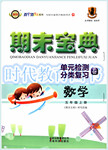题目内容
— Don't lost ______ heart, John. Failure is the mother of success.
B. /; the
C. a; /
D. a; the

 期末宝典单元检测分类复习卷系列答案
期末宝典单元检测分类复习卷系列答案
D
I shall never forget the night, a few years ago, when Marion J. Douglas was a student in one of my adult-education classes. He told us how tragedy had struck at his home, not once, but twice. The first time he had lost his five-year-old daughter. He and his wife thought they couldn’t bear that first loss; but, as he said, “Ten months later, God gave us another little girl and she died in five days.”
This double bereavement was almost too much to bear. “I couldn’t take it,” this father told us. “I couldn’t sleep, eat, rest or relax. My nerves were entirely shaken and my confidence gone.” At last he went to the doctors; one recommended sleeping pills and another recommended a trip, but neither helped. He said, “My body felt as if it was surrounded in a vice(大钳子), and the jaws of the vice were being drawn tighter and tighter.” The tension of grief(悲伤) — if you have ever been paralyzed(使瘫痪) by sorrow, you know what the meant.
“But thank God, I had one child left — a four-year-old son. He gave me the solution to the problem. One afternoon as I sat around feeling sorry for myself, he asked, ‘Daddy, will you build a boat for me?’ I was in no mood to build a boat; in fact, I was in no mood to do anything. But my son is a persistent fellow! I had to gave in. Building that toy boat took me about three hours. By the time it was finished, I realized that those three hours spent building that boat were first hours of mental relaxation and peace that I had had in months! I realized that it is difficult to worry while you are busy doing something that requires planning and thinking. In my case, building the boat had knocked worry out of the ring. So I determined to keep busy.”
“The following night, I made a list of jobs that ought to be done. Scores of items needed to be repaired. Amazingly, I had made a list of 242 items that needed attention. During the last two years I have completed most of them. I am busy now that I have no time for worry.”
No time for worry! That is exactly what Winston Churchill said when he was working eighteen hours a day at the height of the war. When he was asked if he worried about his huge responsibilities, he said, “I am too busy. I have no time for worry.”
53. The underlined word “bereavement” in the second paragraph refers to _____.
| A. having lost a loved one | B. having lost a valuable article |
| C. having lost a profit-making business | D. having lost a well-paid job |

| A. he couldn’t earn enough money to support his family |
| B. he was suffering from sleeplessness disease |
| C. he couldn’t get out of mental pressure |
| D. he felt tired of adult-education classes |

A. he hadn’t been able to spare time to mend them
B. he wanted to kill his free time by repairing them
C. the items had actually been broken and needed attention
D. repairing the items helped crowd worry out of his mind
56. At the end of the passage, the author wrote about Winston Churchill in order to _____.

A. prove that he followed Churchill’s example
B. support his student’s solution to his problem
C. show that he was successful in his career
D. make it clear how his conclusion was reached